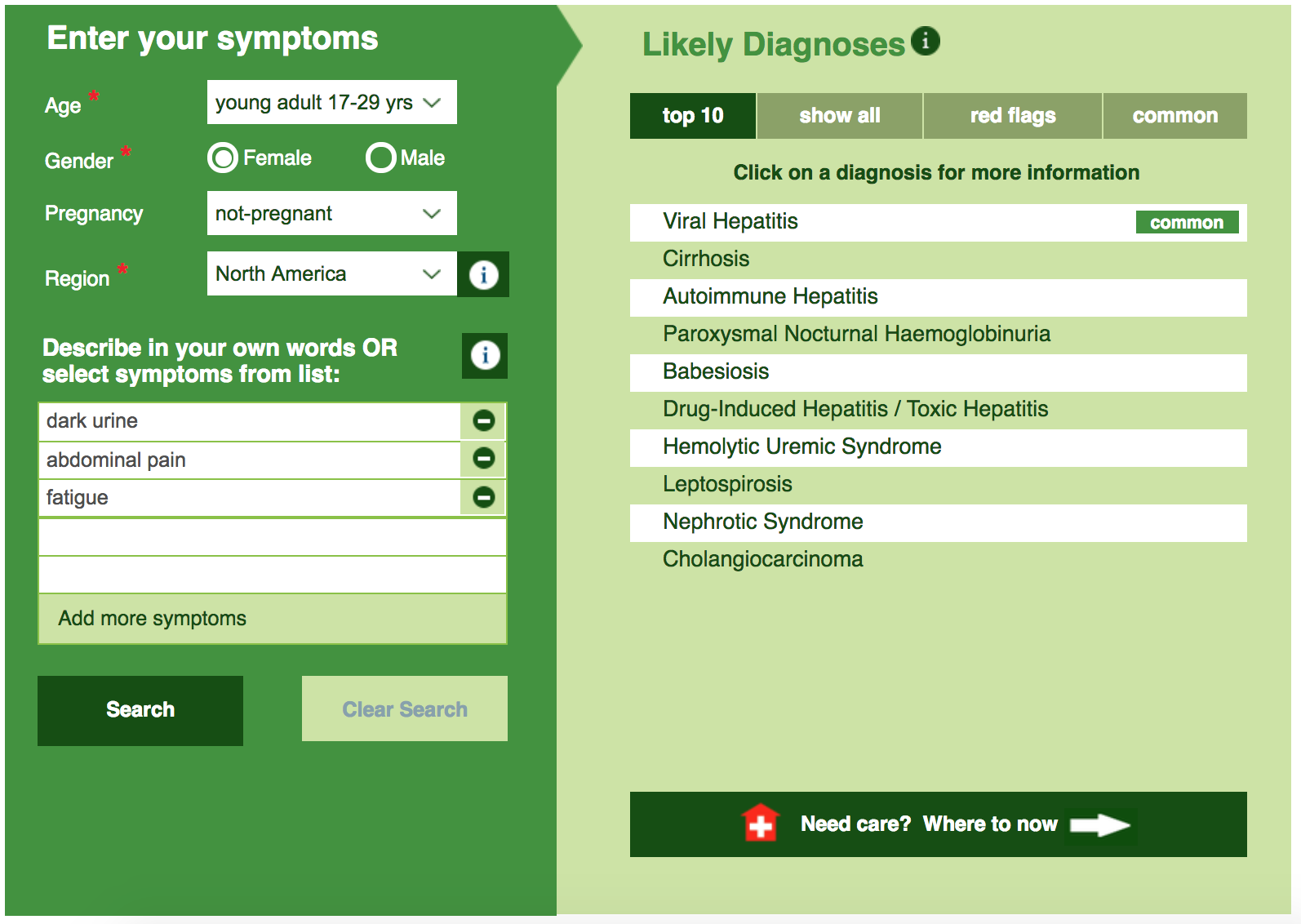- Privacy Policy
- Terms & Conditions
- Contact us
- ©Isabel Healthcare 2025
The 5 Types of Hepatitis - World Hepatitis Day 2018
 As regular subscribers may know, each month we spotlight a world or national health day on which we think we can help spread awareness. This month brings World Hepatitis Day on 28th July. Back in 2016, the World Health Organization (WHO) and 194 co-operating countries around the globe pledged to eradicate hepatitis by 2030. Unfortunately, most countries are not on target at all, and the main reason for that is lack of screening or vaccinations, and therefore diagnosis. Currently there are 300 million people living with hepatitis unknowingly, and potentially spreading the disease through contaminated water, blood or in rare cases sexual contact. There are several types of hepatitis with little or no symptoms, so regular screenings or vaccinations are the best way to detect, treat and eradicate the disease. In this blogpost, we’ll explain what hepatitis is, go over the main types of hepatitis, and talk about the treatments and vaccines available that can help stop the spread and get us back on target for eradicating the disease by 2030.
As regular subscribers may know, each month we spotlight a world or national health day on which we think we can help spread awareness. This month brings World Hepatitis Day on 28th July. Back in 2016, the World Health Organization (WHO) and 194 co-operating countries around the globe pledged to eradicate hepatitis by 2030. Unfortunately, most countries are not on target at all, and the main reason for that is lack of screening or vaccinations, and therefore diagnosis. Currently there are 300 million people living with hepatitis unknowingly, and potentially spreading the disease through contaminated water, blood or in rare cases sexual contact. There are several types of hepatitis with little or no symptoms, so regular screenings or vaccinations are the best way to detect, treat and eradicate the disease. In this blogpost, we’ll explain what hepatitis is, go over the main types of hepatitis, and talk about the treatments and vaccines available that can help stop the spread and get us back on target for eradicating the disease by 2030.
What is Hepatitis?
Hepatitis is a term a lot of people know, but few people actually understand what the disease is. It is, in fact, an inflammation of the liver, usually caused by a viral infection. Your liver is a critical organ that performs so many functions in your body, such as filtering out toxins and breaking down proteins in food to make energy. That means liver failure, which is the most likely complication when hepatitis is not treated soon enough, can be fatal. There are 5 types of viral hepatitis, which have different causes but similar symptoms, although these can often only become apparent once the infection has taken hold and significantly affected the liver. As well as the 5 viral hepatitis strands, excessive alcohol can damage the liver and cause hepatitis, as can, in rare cases, an autoimmune response where the liver is attacked as a foreign body.
Symptoms of Hepatitis

You should see your doctor, showing them the results of placing your symptoms into the Isabel Symptom Checker, if you experience any of the following:
- dark urine
- strong smelling urine
- flu-like symptoms
- fatigue
- abdominal pain
- unexplained weight loss
- yellow skin or eyes, as a sign of jaundice
The 5 Types of Hepatitis
Hepatis A
This is mostly contracted from contaminated water, as the disease is spread through feces infected with the hepatitis A virus. It is not particularly dangerous unless combined with a weakened immune system, and requires no treatment as it should clear up itself in a few weeks with rest and plenty of water. In the US and UK, there are vaccines available to prevent infection.
Hepatitis B
Hepatitis B can be transmitted through blood and other bodily fluids like saliva and, in rare cases, sexual contact. It has little symptoms until the infection causes real damage to the liver, and although uncommon in the UK and US, it is prevalent in developing countries. Like hepatitis A, there are also vaccinations against this strain of hepatitis. Treatment once diagnosed involves anti-viral medication but it is sometimes needed for months or even years.
Hepatitis C
This is the most common type of hepatitis and is a blood-borne strain, most often transmitted through dirty needles with infected blood, or from infected mother to baby. It can come in acute and chronic forms. The acute form can be treated and then it will most likely not become a problem again. However, if it becomes chronic, this requires constant medication to help control symptoms and inflammation of the liver. If not controlled, sometimes a liver transplant is the only option.
Hepatitis D
This form of hepatitis is very rare, and can only be contracted through blood and only in conjunction with hepatitis B. It is a very serious liver disease and unfortunately there is currently no effective treatment for it. The best prevention for hepatitis D is to get the vaccination for hepatitis B.
Hepatitis E
Finally, this strain is rare in developed countries, but in developing countries it can cause problems as it is a waterborne disease. Poorly sanitised or contaminated water carries this acute strain, and there is no medication for it currently. Most people can recover quite quickly with rest and clean fluids, but if already weak and malnourished, or if clean water cannot be sourced, the condition worsens.
Diagnosis, Prevention and Screening
Hepatitis A and B both have vaccinations available, and getting the hepatitis B vaccination will also protect you from Hepatitis D. For this reason, spreading awareness of the benefits of these vaccinations and helping people in developing countries get access to them are crucial steps in helping WHO reach their 2030 target. Diagnosing hepatitis once it is suspected is relatively straight forward, using a combination of examinations, blood tests, ultrasound scans and in some cases a biopsy of the liver. What's more, in most strains, anti-viral medication can treat the disease and help you live symptom free. Hepatitis C, the most common form and the strain that 300 million people are living with without knowing, can be regularly screened for at sexual health clinics or with a family doctor, and this is very important as a step for us to control the spread of this common disease.
If you are concerned about any of the symptoms mentioned in this post, put everything through our Isabel Symptom Checker and discuss the results with your doctor:

Mandy Tomlinson
Mandy has worked for Isabel Healthcare since 2000. Prior to this, she was a Senior Staff Nurse on the Pediatric Infectious disease ward and high dependency unit at one of London's top hospitals, St Mary’s in Paddington which is part of Imperial College Healthcare NHS Trust. Her experience in the healthcare industry for the past 33 years in both the UK and USA means she's a vital resource for our organization. Mandy currently lives and works in Scottsdale, Arizona.
Subscribe Here!
Recent Posts
Isabel DDx Companion with ChatGPT Integration - to help you diagnose even faster
At Isabel Healthcare, we’ve always been driven by one goal: to make clinical reasoning faster,..Virtual Triage: Do more questions lead to better patient outcomes?
One of the common misconceptions related to virtual triage / symptom checker tools is that the more..List Of Categories
- Differential Diagnosis Decision Support
- Differential diagnosis
- Symptom Checker
- Symptoms
- Medical Error
- Patient Disease Information
- Disease
- Clinical Decision Support
- Diagnostic Decision Support
- Isabel 1 Minute Read
- Diagnosis Error
- Diagnosis Skills Cases
- Healthcare Informatics
- Clinical Reasoning
- Evidence-based Medicine
- Medical Education
- Patient Engagement
- Symptom Triage
- Nurse Practitioner Education
- Nursing Decision Support
- Partnership
- Public Health
- COVID-19
- EHR
- Patient Empowerment
- Patient Safety
- rare disease

Start your FREE Trial today
Try the Isabel Pro DDx generator for 30-days - no payment card details required.




